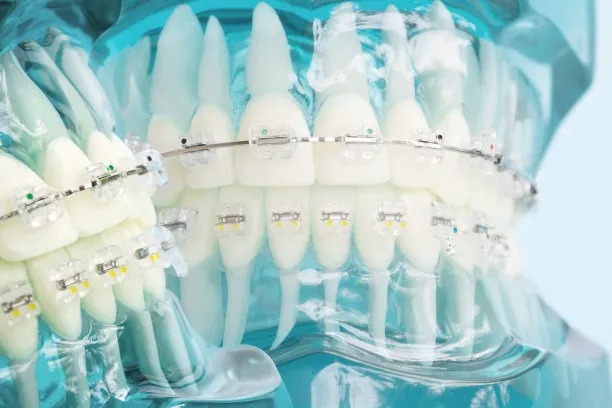Summary: Dental fillings are vital for restoring the integrity and function of teeth affected by decay or damage. Ensuring a successful dental filling procedure requires precise precautions, which not only enhance the immediate results but also promote long-lasting oral health. This article explores four essential aspects: choosing a qualified dentist, understanding filling materials, maintaining oral hygiene post-procedure, and scheduling regular dental check-ups. Each segment elaborates on practical steps and considerations that patients must take to ensure not only the effectiveness of their fillings but also the overall longevity of their dental health.
1. Choosing a Qualified Dentist for Fillings

One of the most critical steps in ensuring a successful dental filling procedure is selecting a qualified and experienced dentist. A well-trained dental professional will have the skills and knowledge to assess the extent of tooth decay or damage accurately. They鈥檒l also be familiar with the latest techniques and technologies in dental fillings, which can significantly affect the outcome.
Furthermore, a dentist who values patient education will explain the procedure thoroughly, addressing any concerns or questions. Understanding what to expect can alleviate anxiety and lead to a more comfortable experience. Look for recommendations or reviews from previous patients to gauge the dentist鈥檚 competency and approachability.
Lastly, consider checking if the dentist has specialized training in restorative dentistry. This can make a substantial difference in skill level, leading to a more satisfactory result and reducing the likelihood of complications or further dental issues.
2. Understanding Different Filling Materials
Dental fillings come in various materials, each with its pros and cons. Some common choices include amalgam, composite resin, glass ionomer, and porcelain. Understanding these materials plays a crucial role in making informed decisions about your dental health. Amalgam fillings, for example, are known for their durability and are ideal for molars, which withstand significant chewing pressure.
In contrast, composite resin fillings offer a more aesthetic appearance and can be closely matched to the natural color of your teeth, making them an excellent choice for visible areas. However, they may not be as long-lasting as amalgam. Patients should discuss the benefits and disadvantages of each material with their dentist, taking into consideration factors such as location of the filling, cost, and personal preferences.
Moreover, advancements in dental materials continue to emerge, providing options that are not only more cosmetic but also more biocompatible. Being aware of these advancements can also help in achieving a better outcome for your dental filling procedure.
3. Maintaining Oral Hygiene After Fillings
Post-procedure oral hygiene is paramount in ensuring the longevity of dental fillings. After a filling, patients should be attentive to their oral care routine, which should include regular brushing and flossing. Its essential to avoid hard foods immediately after the dental filling, especially if a local anesthetic was used, as it may result in accidentally biting down on the cheek or tongue.
Regular brushing with fluoride toothpaste not only keeps the teeth clean but also strengthens enamel, thereby extending the life of the dental work. Additionally, using an antibacterial mouthwash can help minimize the risk of infection in the healing area around the filling.
Patients should also be vigilant about any changes in their mouth, such as sensitivity or discomfort around the filling. Reporting these symptoms to the dentist promptly can prevent complications and ensure the filling remains intact.
4. Scheduling Regular Dental Check-Ups
Schedule regular dental check-ups after your filling procedure, as this plays a vital role in maintaining oral health. Routine visits allow your dentist to monitor the condition of your fillings and check for any signs of decay or gum disease. Regular cleanings also help eliminate plaque and tartar buildup, which can compromise dental work.
Moreover, during check-ups, the dentist can assess the possibility of wear and tear on fillings and offer solutions to address any issues before they become significant problems. Early intervention can save money and prevent further dental complications.
Additionally, many dental professionals recommend biannual visits for cleanings and assessments, which can significantly contribute to long-lasting oral health. By prioritizing regular check-ups, patients will not only ensure their fillings remain functional but will also invest in their overall well-being.
Summary:
In summary, ensuring a successful dental filling procedure hinges on four main factors: selecting a qualified dentist, understanding filling materials, maintaining diligent oral hygiene post-procedure, and committing to regular dental check-ups. By considering these precautions, patients can not only enhance the immediate effectiveness of their fillings but also promote their long-lasting oral health.
This article is compiled by Vickong Dental and the content is for reference only.
Vickong Dental
Vickong Dental is a large medical group established in Hong Kong in 2008 by professors from well-known medical universities in Guangdong and Hong Kong, as well as medical doctors from key national '985' universities (including Master's supervisors and senior professors). The chain of branches brings together expert dentists with PhDs and Master's degrees from Hong Kong and Mainland China, committed to providing high-quality dental treatment.
"Vickong Dental Practices the University Motto of 'Healing and Serving Society,' with a Stable Operation for Sixteen Years. It Has Been honored with Hong Kong Enterprise Leaders's Choice,' and is a Global Trusted Implant Center for the Nobel Implant System. Recommended by Hong Kong Metro Broadcast and Guangdong Television, it Serves Customers from Over Thirty Countries and Regions, Gaining the Trust and Favor of Citizens from the Guangdong-Hong Kong-Macau Greater Bay Area and Surrounding Cities.

Thousands of customers' unanimous praise
The most recognized and highly recommended dental service by customers in the Guangdong-Hong Kong-Macau Greater Bay Area
We Ensure You Receive Detailed Care and Attention Here
Hong Kong standards, Shenzhen prices, Your Trusted English-speaking dentists

Vickong Dental Medical-Grade Instrument Disinfection Process
Vickong Dental Medical-Grade Instrument Disinfection Process

Vickong Dental Chain: A Warm and Comfortable Environment for Treatment






Appointment Hours

Q&A
Why choose Vickong Dental?
Vickong Dental practices the university motto 「Medicine to Benefit Society」, with each branch bringing together highly qualified dentists with doctoral and master’s degrees from Hong Kong and the Mainland, and has maintained seventeen years of steady operation。Recipient of 「2024 Hong Kong Enterprise Leaders Brand」, 「2025 Hong Kong Enterprise Leaders Brand」, a Nobel Biocare Global Trusted Implant Center, and a brand recommended by Metro Radio Hong Kong and Guangdong TV。
To date, we have served customers from more than thirty countries and regions,earning exceptionally high word-of-mouth recognition and trusted recommendations from residents across the Guangdong-Hong Kong-Macao Greater Bay Area and surrounding cities
We have eight major branches in Zhuhai、Shenzhen,and a consultation and service assurance center in Hong Kong,so you can book a free consultation at any time for any questions,which is very reassuring.
If I do not accept the quotation after the CT scan, will I be charged??
No! As long as the actual treatment has not started, you will not be charged any fees.
Will there be any additional charges during the treatment process?
No, there won’t be any additional charges. Before treatment begins, we will clearly explain the treatment plan and its corresponding fees. Only after the patient agrees and signs the consent form will we proceed with the dental service.
Can I pay in Hong Kong dollars?
Yes. Vickong Dental accepts payment in Hong Kong dollars. The amount will be converted based on the exchange rate of the day, and the applicable rate will be clearly communicated to you in advance.
Can I reschedule my appointment at any time?
Yes. Please contact us via **WeChat** or **WhatsApp** as early as possible, providing your original appointment time and details, along with your preferred new date and time slot for rescheduling.













